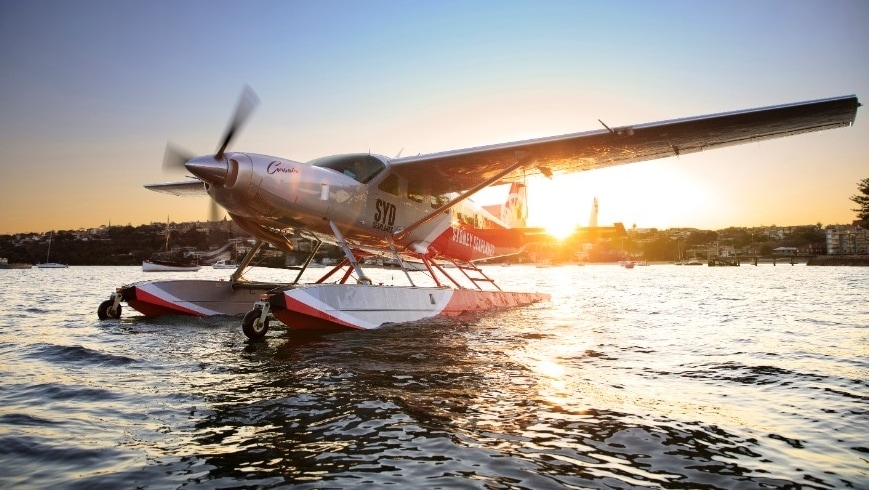 Sydney Seaplanes is aiming to convert a Cessna Caravan into the first all-electric aircraft certified by CASA.
Sydney Seaplanes is aiming to convert a Cessna Caravan into the first all-electric aircraft certified by CASA.
The airline, which operates five seaplanes from Sydney Harbour, is targeting an early 2023 launch and would then offer the service to other Caravan operators in the region.
Sydney Seaplanes is collaborating on the project with WA-based electric aviation specialist magniX and Australian-Spanish start-up Dante Aeronautical.
Sydney Seaplanes chief executive Aaron Shaw told the SMH he believes there will be a revolution in aviation.
“Combined with our commitment to use solar technology in our charging facilities, this puts us in a very strong position to become the world’s first fully-electric nil-emissions airline, subject to the speed of regulatory approvals,” said Shaw.
Sydney Seaplanes is in a unique position as an operator because many of its scenic tours last around 10 minutes.
“The environmental benefits are clear, with nil-emissions travel already technically possible on shorter journeys, and with the exponential improvement in battery technologies, range will continue to increase,” said Shaw.
In 2019, magniX claimed to fly the “world’s first commercial all-electric aircraft”, which was a six-passenger DHC-2 de Havilland Beaver it christened the eBeaver.
In May 2020, the company then successfully flew the largest all-electric commercial aircraft, a Cessna 208B Grand Caravan.
“This is another terrific milestone for the electric aviation revolution and one that magniX is thrilled to be a part of as the industry continues to innovate,” said magniX chief executive Roei Ganzarski. “Expanding with STC partners globally on more and more aircraft platforms means more sustainable air travel brought to market and to the masses. And for operators, the all-electric aircraft provides the benefits of clean, cost-effective aviation.”
It comes as the aviation industry worldwide comes under increasing pressure to reduce its carbon footprint – earlier this year, for instance, a British court ruled London Heathrow couldn’t build a third runway because of environmental concerns.
Closer to home, Webjet launched a new carbon offset program in response to its customers “increasingly demanding” more sustainable travel options in September. The online travel agent collaborated with software provider Tasman Environmental Markets (TEM) on a tool that calculates the CO2 emissions of a user’s travel itinerary before offering the option to fund environmental projects to compensate.
Meanwhile, in August, Australian Aviation reported that Melbourne Airport was on track to finish construction of its enormous solar farm in September, ready for it to be switched on in January.
Melbourne Airport said the project, conceived in 2018, will be the largest of its kind in Australia and will provide the equivalent of 15 per cent of the facility’s annual electricity consumption.
The solar farm follows similar projects installed at Karratha, Adelaide and Brisbane. The latter claimed upon its completion in 2018 to be the largest commercial rooftop solar system in the southern hemisphere, consisting of 6,500 panels covering more than 22,000 square metres.















